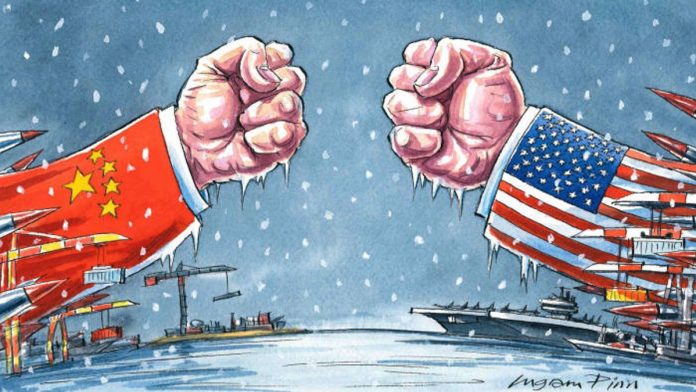
It is common to see analyzes saying that we are entering a new Cold War. This usually happens with each more incisive move made by the Chinese government. Basically the idea is that the United States would be on a pole of power and China would come to occupy the opposite pole, questioning American power. While the question of tensions around power projections may be true, it is incorrect to say that this is a Cold War.
What was the Cold War? In a more superficial way was the indirect clash between the United States and the Soviet Union (basically sustained in the atomic race). In more structural terms, the big question was the competition between two models of self-excluding political-economic organization.
In the last instance, capitalism needs to expand its markets and decrease the relevance of the state so that the economy can flow without much interference outside the law of supply and demand. Not extreme, what should happen is the creation of a global market and the potential disappearance of the state.
No communism, in its turn, the economic process must be planned and decided by the state, in order to avoid the accumulation of wealth by only a portion of society. The communist state is a necessary step to make the revolution and, at end, should end, passing economic control directly to people.
In both cases, the prediction of total success means the disappearance of the State as a form of political organization, forming just one big global reach system. This is the reason why the progress of one of the parties, during the Cold War, was also understood with the loss of the other. The atomic race was another element of this competition, but it was soon overtaken as a military instrument (when the accumulated destruction capacity was greater than what the planet itself could handle) to become a form of demonstration of power and, like this, of evidence on the success of the proposed model.
What we see today has nothing to do with this conflict. There is no doubt that China has power vectors with global projections in several areas, as a military, the economic, politics and, increasingly, a cultural. But, different from what happened in the Cold War, there is no competition for self-excluding models. The question here is about leadership and, like this, about singularities of the same model, but not about the model itself. China does not question the existence of capitalism, instead, learned to operate under the rules of capitalism. Does not question the existence of democracies as a form of government, although it adopts a centralized model and, in the western conception, undemocratic.
After decades of having in the United States the greatest defender and the most consolidated symbol for the defense of a model, we ended up believing that any questioning of this leadership or even symbolism means a threat to the model. We do not realize that this is not a new pole of power with an alternative proposal, which would lead us to a new bipolar structure. More than that, today we have a systemic questioning, we are living in a moment of restructuring of the international system, with new flows of relationships and with the consolidation of other actors with great capacity to influence international flows.
When we look specifically at the Brazilian reality, understanding what's going on is even more important. We don't live in a time of us-against-them or of right versus wrong. We live in a time when international dynamics are more fluid. It is not the time to follow automatic or ideological alignments, but to understand how we can operate in a more dynamic and less certain world than that of the Cold War.
Below I indicate the reading of some articles that make the analysis defending that we are entering a new Cold War. For each person's judgment.
BBC – The world is entering a new Cold War?
The country – USA vs. China: scenarios of the new cold war
This IS Money – The new Cold War heats up
